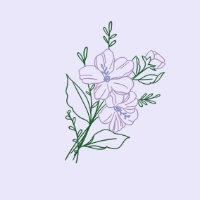Flowers have long been cherished as expressions of love, gratitude, and celebration. But in an age of environmental awareness, choosing eco-friendly blooms can elevate your gesture into something even more thoughtful. These sustainable options are not only visually captivating but also reflect your commitment to the planet. In this guide, you’ll learn how to identify and select environmentally responsible flowers that make your gifts more meaningful and mindful.
Understanding What Makes Flowers Eco-Friendly
The term eco-friendly flowers refers to blooms that are cultivated with minimal harm to the environment. A major factor is organic farming, which avoids the use of synthetic fertilizers and harmful pesticides. This type of cultivation supports healthier soil, protects pollinators like bees, and reduces toxic runoff into nearby water sources. Choosing organically grown flowers ensures that your gift is not just beautiful, but also safe for the ecosystem.
Equally important is local and seasonal growth. Flowers grown locally require less energy for transportation and refrigeration, which helps cut down on carbon emissions. Seasonal flowers grow in harmony with nature’s rhythms and need less artificial intervention such as heated greenhouses or excess irrigation. By choosing flowers in season and from nearby farms, you make a more sustainable choice.
Another important element is minimal packaging and ethical labor practices. Many conventional flower suppliers use plastic wraps and unsustainable shipping methods. In contrast, eco-conscious florists favor recyclable or compostable materials. Additionally, flowers from farms that support fair wages and safe working conditions uphold values of social responsibility alongside environmental care.
The Importance of Eco-Friendly Flowers in Gifting
When you give a gift, you express more than affection—you reveal your values. Choosing eco-friendly flowers transforms a simple bouquet into a message of environmental respect and thoughtfulness. Such gifts say: “I care about you and the world we live in.” This added meaning enhances the emotional impact of the gesture.
Many mass-produced floral arrangements rely on intensive chemical use, long-distance shipping, and exploitative labor. Opting for sustainable blooms counters that by supporting ethical farms and encouraging healthier agricultural practices. Every eco-conscious choice contributes to reducing pollution and preserving biodiversity.
Moreover, eco-friendly gifts can inspire others. When friends and family receive a sustainable bouquet, they may begin to question their own habits and consider more planet-friendly alternatives. In this way, your gift becomes more than just decoration—it becomes a quiet act of advocacy.
Types of Eco-Friendly Flowers to Consider
Some flowers are naturally more sustainable due to how they grow or where they’re sourced. Sunflowers, for example, are low-maintenance and require little water, making them a smart eco-friendly option. Their radiant appearance and symbolism of warmth make them ideal for cheerful and uplifting gifts.
Lavender is another excellent choice. This plant thrives in dry conditions and can often be grown without synthetic chemicals. Its calming scent and delicate color make it especially suitable for gifts intended to soothe or relax. For a romantic option, garden roses—especially heirloom varieties—are grown locally and organically, often with deeper fragrance and more complex petals than imported roses.
Also worth considering are wildflowers or native plants. These species are adapted to local climates and typically require less water and care. Supporting native blooms not only benefits the local ecosystem but also ensures your gift aligns with the principles of biodiversity and conservation.
How to Identify and Source Sustainable Flowers
Identifying truly sustainable flowers can be easy if you know what to look for. Start by visiting local florists and asking about their supply chain. Shops that work with local growers or certified organic farms usually take pride in sharing that information. Don’t hesitate to inquire about their sourcing methods and packaging materials.
Certifications like Fair Trade, Rainforest Alliance, or USDA Organic provide assurance that the flowers meet strict environmental and ethical standards. Some farms even operate on a farm-to-vase basis, meaning the flowers go directly from grower to customer with minimal processing or waste. These direct models support transparency and often deliver fresher, longer-lasting blooms.
Farmer’s markets are another excellent place to shop. There, you can engage directly with growers, understand their methods, and even ask for recommendations based on the season. By supporting small farms, you also reinforce community-based agriculture and reduce the environmental impact of mass flower production.
Alternatives to Cut Flowers for Sustainable Gifting
While traditional bouquets are lovely, alternatives to cut flowers can be just as beautiful—and even more sustainable. Potted plants are a great example. Whether it’s a blooming orchid, a peace lily, or a stylish succulent, potted plants have longer life spans and offer ongoing joy. They also help improve indoor air quality, adding functional value to your gift.
Dried flowers and preserved arrangements are another eco-conscious choice. These can last for months or even years with minimal care. Unlike fresh blooms, they don’t require watering or refrigeration, and they maintain their beauty over time. They also offer opportunities for creative, low-waste packaging using reusable containers.
You can also explore DIY plant kits, which include organic seeds, soil discs, and biodegradable pots. These kits allow the recipient to enjoy the process of planting and growing their own flowers. It’s a thoughtful, educational, and interactive alternative that reflects both creativity and sustainability.
- Potted plants like succulents or orchids
- Dried or preserved flower arrangements
- DIY seed-growing kits with eco-friendly materials
Finally, check out how to create personalized flower arrangements to reflect your unique style.
FAQ
What are the main traits of eco-friendly flowers?
They’re grown organically, sourced locally, and packaged sustainably.
Are preserved flowers a better gift than fresh ones?
Yes, they last longer and require no water, making them more sustainable.
Where can I find certified eco-friendly flowers?
Visit local florists, farmer’s markets, or online stores with Fair Trade or USDA Organic labels.

